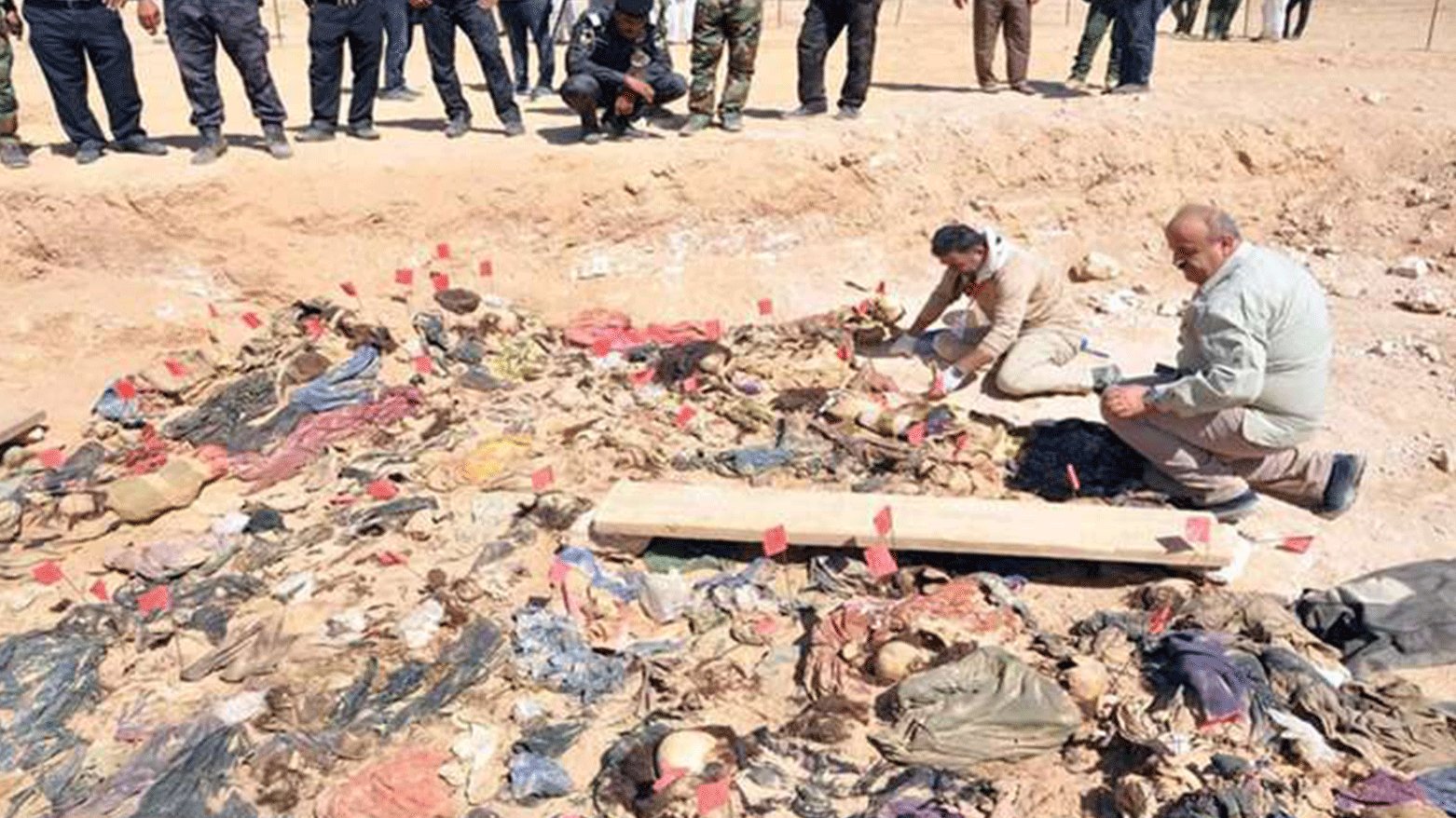Bodies of 172 Anfal victims return to Kurdistan Region

ERBIL (Kurdistan24) - The bodies of 172 Anfal Campaign victims held in a Baghdad morgue on Saturday were handed over to Kurdish authorities in the Kurdistan Region.
The ceremony was attended by the relatives of a number of the victims, the Iraqi Minister of Health, the supervisor of Garmiyan Independent Administration, and the mayor of Kirkuk’s Chamchamal district.
The bodies were previously unearthed in 2019 when Iraqi forensics teams discovered a mass grave in the deserts of Samawah in southern Iraq’s Muthanna Governorate. Consisting mostly of women and children, the bodies were sent for forensic medical examinations.
The Ba'ath regime massacred and buried 182,000 Kurds in eight phases, which involved imprisonment, torture, and, subsequently, death by execution.
There are believed to be more than 100 mass graves near Nugra Salman prison and the deserts of Samawa, containing thousands of bodies of Kurdish Anfal victims.
The Nugra Salman prison, located in Muthanna, was one of the most notorious prison camps in the country, where the majority of the Kurdish victims were tortured and interrogated.
Annually on April 14th, the Kurdistan Region observes the remembrance of Anfal, when Iraqi forces launched their assault on Garmiyan.
While Anfal officially began in 1988, some historians consider the 1983 campaign against the Barzanis, in which 8,000 members of the Kurdish group were captured and systematically executed in mass graves, as the actual onset.
The campaign’s underpinnings originated from Ba’ath Party accusations that the Kurds were militarily collaborating with Iran during a bloody war between the two countries that began in 1980 and ended in 1988, although fascist principles against the Kurds have also been cited.
Editing by Dastan Muwaffaq
